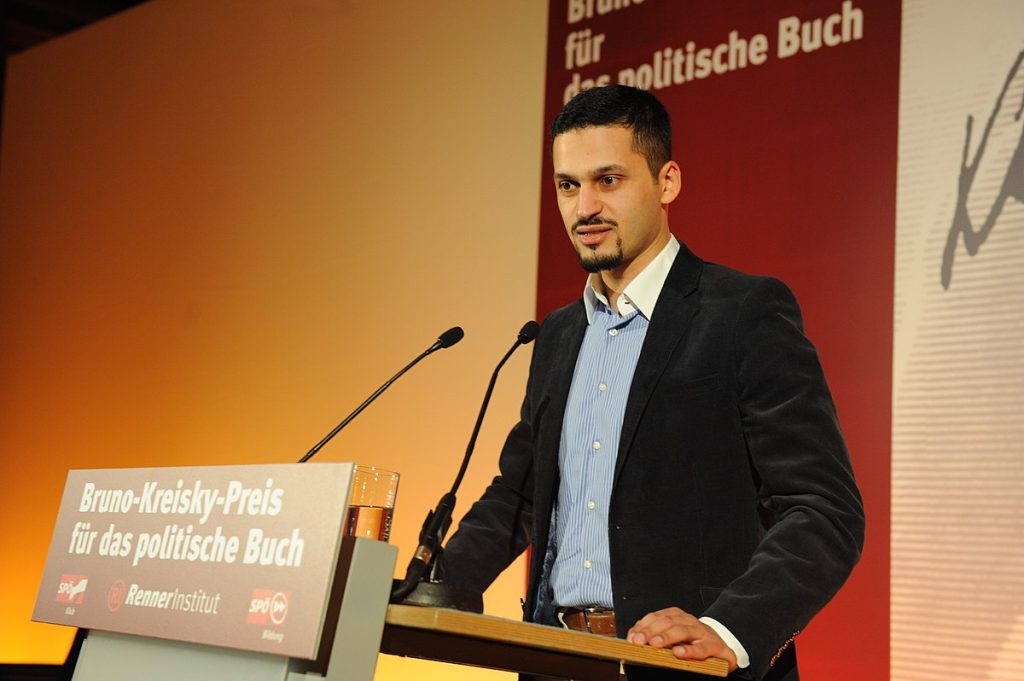A high-profile campaign against Islamic extremism in Austria is on the brink of collapse after courts exonerated more than two dozen influential Islamists of terrorism charges due to insufficient evidence. The legal setbacks represent an unmitigated disaster for the Austrian government’s efforts to counter political Islam.
The failed crackdown on non-violent Islamism in Austria is likely to have dire long-term consequences for the country.
The suspects, who were the focus of Operation Luxor, a high-profile nationwide counter-terrorism operation carried out in November 2020, have avoided formal charges through a combination of skillful legal wrangling by their attorneys, incompetence on the part of Austrian law enforcement officials, and lenient rulings from sympathetic judges.
The failed crackdown on non-violent Islamism in Austria is likely to have dire long-term consequences for the country, where efforts to counter political Islam are being stymied by multiculturalism, political correctness, and deep divisions in domestic politics over the role and perceived danger of Islamism.
On January 10, the Higher Regional Court (Oberlandesgericht) in Graz, the second-largest city in Austria after Vienna, ordered the government to drop its case against Farid Hafez, an Austrian-born political scientist, because the government was unable to prove that he is a member of a terrorist organization.
Austrian officials alleged that Hafez is affiliated with the Muslim Brotherhood and Hamas and was guilty of terrorism financing, money laundering and seeking to establish Islamist enclaves in Europe. He was also accused of trying to overthrow Egypt’s anti-Islamist government, calling for the destruction of Israel and seeking to establish a worldwide Caliphate.

Hafez, best known for editing the annual “European Islamophobia Report,” produced with the backing of Turkish President Recep Tayyip Erdoğan, has long been a thorn in the side of the Austrian government. He has asserted that “Islamophobia” forms the basis of “accepted racism” in Europe, where politicians are embracing anti-Muslim bias to mobilize voters.
The Graz court noted that although Hafez is an Islamist provocateur who pushes the narrative of “Muslim victimhood” and tries to silence his critics by branding them as “Islamophobes,” this does not prove that he is a member of a terrorist organization.
On January 6, the same court ruled that another Islamist, allegedly the “leading Muslim Brotherhood operative in Austria,” could not be prosecuted for terrorism offenses because the government had provided insufficient evidence of his guilt. The court determined that the government’s allegations against the defendant, identified only by the initials A.S., could not be proved because they were based on “a collection of mere suggestions, rumors and assumptions from sources that can no longer be verified.”
The court also ordered prosecutors to drop their investigation of Anas Schakfeh, a former president of the Islamic Religious Authority of Austria (Islamischen Glaubensgemeinschaft in Österreich, IGGÖ), an umbrella organization of more than 250 Muslim associations throughout Austria. Prosecutors alleged that Schakfeh, 78, was close to the Muslim Brotherhood, but the Graz court ruled that the evidence against him was insufficient.
In all, Austrian courts have now dropped terrorism charges against 30 of 70 alleged members of the Muslim Brotherhood and Hamas. The high-profile setbacks have called into question the government’s legal basis for approving Operation Luxor, the largest-ever counter-terrorism operation in Austrian history. The raids, conducted during the pre-dawn hours of November 9, 2020, involved more than 900 police officers and special forces members who raided 60 properties — apartments, houses, businesses, shops and mosques — linked to 70 suspected Islamists in four Austrian states.
Police detained 30 people and confiscated documents, cell phones, computers and more than 25 million euros in cash. Those detained were questioned for a panoply of suspected illegal activities, including money laundering, terrorist financing and subversion. Prosecutors said that Austrian security services had surveilled the suspects for more than 20,000 hours before the government approved Operation Luxor.
The raids were carried out exactly one week after a jihadist attack in Vienna left four people dead and 23 others injured. The November 2, 2020 attack was claimed by the Islamic State and a verdict in the trial of six suspected accomplices of the Vienna attacker, who was shot dead by police, is expected in early 2023.
At the time of the raids, then Interior Minister Karl Nehammer (who is now Chancellor of Austria) said that Operation Luxor was primarily focused on the Muslim Brotherhood, which he described as “deeply dangerous” because it seeks to “undermine democracy, introduce Sharia law and fight against the basic rights and freedoms that have become dear to us.” The raids, Nehammer said, had “struck a blow” against “the breeding ground of extremism” in Austria. Integration Minister Susanne Raab added: “With this strike against the Muslim Brotherhood, we are taking the fight against radical, extremist ideologies seriously. We will not allow extremist ideas to be spread in Austria.”
Since then, Austrian courts have systematically dismantled the government’s legal arguments for approving Operation Luxor. In August 2021, the Graz court ruled that, in contradistinction to the Islamic State, it did not consider the Muslim Brotherhood to be a terrorist organization but rather a “mass movement consisting of millions of followers.” The court declared that “The conclusion that everyone attributed to this movement is a terrorist is simply wrong and therefore inadmissible.”
In November 2021, the Graz court questioned information provided by an “anonymous whistleblower” whose tips provided groundwork for the nationwide raids. The court complained that in at least one instance, the whistleblower’s information was not based on “factual assessments” but rather on “perceptions.”
In June 2022, the Graz court ordered two expert consultants on political Islam to be fired due to their alleged bias. Historian Heiko Heinisch and political scientist Nina Scholz had been commissioned by the public prosecutor’s office in Graz to write an expert report on the Muslim Brotherhood in Austria. That report played an important role in the decision to approve the November 2020 raids. The court noted a 2017 television appearance in which Heinisch said that the Muslim Brotherhood had contacts with terrorist groups. The court ruled that the comments “could raise doubts” as to whether Heinisch was “actually completely neutral.”
The Austrian government’s case has also been hampered by a lack of Arabic translators. Operation Luxor-related raids resulted in the confiscation of more than 200 terabytes of Arabic-language documents. An official document leaked to Der Standard newspaper estimated that with the current number of translators on the case, it would take 21 years for all the documents to be translated into German.
Austrian journalist Jan Michael Marchart, who has chronicled the progression of Operation Luxor, warned that the government’s failure would “provide impetus” to the “problematic inciters” of the Islamist scene in which “anti-Zionist and anti-Western worldviews” prevail — to those “who believe they are in a fight with the Western world.”
Soeren Kern is a contributor to Focus on Western Islamism.
